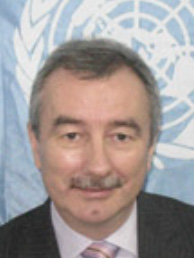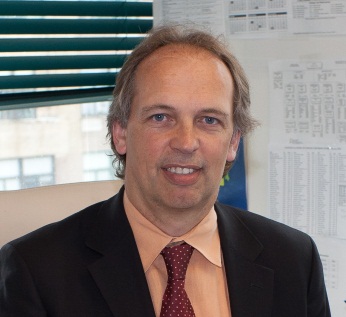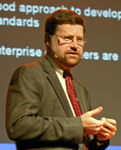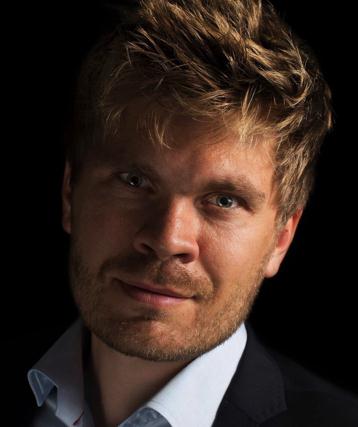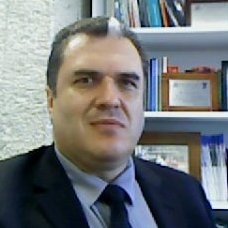International Conference on Big Data for Official Statistics
Organized by the National Bureau of Statistics of UAE, GCC-Stat, the United Nations Statistics Division, and the Australian Bureau of Statistics
- Abu Dhabi, UAE
- 20-22 October 2015
- #UNBigData2015
- UN Big Data Website
Innovations in technology, widespread penetration of electronic devices, and the rapid rise in the use of technology for social purposes all bring fundamental changes to the availability of real-time information. Such massive, highly dynamic and weakly structured data is commonly referred to as Big Data. The statistical community officially recognized the potential of Big Data, when, in March 2014, the UN Statistical Commission established a global working group (GWG) mandated to provide strategic vision, direction and coordination of a global programme on Big Data for official statistics. The GWG promotes its practical use of Big Data, capacity building and sharing experiences, while finding solutions for the associated challenges.
On 20-22 October 2015, the second global conference on Big Data for official statistics will take place in Abu Dhabi, United Arab Emirates. This conference intends to take the development of Big Data one step further. Thus far, many examples of Big Data projects have been demonstrated. Now, the focus will be on lessons learned on the basis of detailed descriptions of those case studies. This is a first step towards guidance on using Big Data for Official Statistics, which can stimulate training, pilot projects and bringing pilot projects into the production environment. Therefore, the theme of the second global conference is 'moving from examples to guidelines'.
Concept Note and provisional agenda
More information on the purpose and context of the conference can be found in the Concept Note. The agenda shows that the conference will open with a high-level segment emphasizing the importance of timely, detailed and high quality statistics to support national policies as well as market and public research.
The opening day, 20 October 2015, also coincides with the second World Statistics Day proclaiming “Better data. Better lives.” This conveys the idea that the ultimate goal of producing high quality official statistics is to improve the lives of people and underlines the connection of data and sustainable development. This also means that we have the unique opportunity to celebrate World Statistics Day, while highlighting the benefits of Big Data for official statistics.
Conference Agenda
Click here for Agenda for Meeting of the GWG on Big Data for Official Statistics
Tuesday, 20 October 2015
Opening Session
9:00 – 10:30
Registration and Tea
10:30 – 11:10
Ceremonial Opening Session: Big Data and World Statistics Day
- H.E Sheikh Nahyan bin Mubarak Al Nahyan, Minister of Culture, Youth and Community Development, UAE
- H.E. Frode Mauring, United Nations Resident Coordinator, UNDP, UAE
- H.E. Sabir Al-Harbi, Director General, Statistical Office of GCC (GCC-Stat)
- Mr. Trevor Sutton, Deputy Australian Statistician and Chair, UN Global Working Group on Big Data
11:10
Intermission
11:15 - 12:45
High-level Panel - The Big Data Landscape 2015-2020
Moderator: Ronald Jansen, UNSD
12:45
Lunch Break
Afternoon Session - Day 1
14:00 - 17:30
Big Data for Official Statistics: from examples to guidance
Overview by Trevor Sutton, Deputy Australian Statistician and Chair of the UN Global Working Group on Big Data for official statistics14:00 - 14:30
14:30 - 15:45
Mobile Phone Data
Introduction: Ronald Jansen, UNSD
Moderator: Sabir Al-Harbi, GCC-Stat
Panel Discussion:
15:45
Tea Break
16:00 - 17:30
Wednesday, 21 October 2015
Morning Session - Day 2
09:00 - 12:15
Big Data for Official Statistics: from examples to guidance
Opening by Trevor Sutton, Deputy Australian Statistician and Chair of the UN Global Working Group on Big Data for official statistics09:05 - 10:30
Satellite imagery, remote sensing and geo-spatial data
Introduction: Siu-Ming Tam, ABS
Moderator: Greg Scott, UNSD
Panel Discussion:
- “Remote Sensing Data Sources Outlook”, Arnold Dekker, CSIRO, Australia
- “Beyond Crop Production Estimates: Integrated climate, biophysical and remote sensing approaches”, Andries Potgieter, University of Queensland, Australia
- “Using satellite images to calculate the land use and land cover statistics”, Sandra Rodriguez, DANE, Colombia
- “Global economic transparency: Google and new frontiers in remote sensing”, Patrick Dunagan, Google
- “Analysis for Rural-Urban Systems and Historic Climate Data in Mexico” Juan Munoz, INEGI, Mexico
10:30
Tea Break
10:45 - 12:15
Skills, training and capacity building
Introduction: Sufyan Daghra, UAE
Moderator: Steven Vale, UNECE
Keynote: “Big Data Sandbox”, Antonino Virgillito, ISTAT Panel Discussion:
12:15
Lunch Break
Afternoon Session - Day 2
14:00 - 17:15
Big Data for Official Statistics: from examples to guidance
Opening by Trevor Sutton, Deputy Australian Statistician and Chair of the UN Global Working Group on Big Data for official statistics14:05 - 15:30
Access and partnerships for Big Data
Introduction: Peter Struijs, Statistics Netherlands
Moderator: Albrecht Wirthmann, Eurostat
Panel Discussion:
15:30
Tea Break
15:45 - 17:15
How to communicate the value of Big Data for official statistics
Introduction: Marko Javorsek, ESCAP
Moderator: Susan Teltscher, ITU
Panel Discussion:
- Emmanuel Letouze, DataPop
- Niels Ploug, Statistics Denmark
- Mara Bravo Osorio, DANE, Colombia
- Julieth Solano, DANE, Colombia
- Albrecht Wirthmann, Eurostat
- Steven Hagan, Oracle
Thursday, 22 October 2015
Morning Session - Day 3
09:00 - 12:15
Big Data for Official Statistics: from examples to guidance
Opening by Trevor Sutton, Deputy Australian Statistician and Chair of the UN Global Working Group on Big Data for official statistics09:05 - 10:30
Quality, Tools and Methods
Introduction: Albrecht Wirthmann, Eurostat
Moderator: Piet Daas, Statistics Netherlands
Panel Discussion:
10:30
Tea Break
10:45 - 12:15
Big Data and the Sustainable Development Goals
Introduction:
Amparo Ballivian, World Bank
Ronald Jansen, UNSD
Moderator: Trevor Sutton, ABS
Panel Discussion:
12:15
Lunch Break
Afternoon Session - Day 3
14:00 - 17:30
Big Data for Official Statistics: from examples to guidance
Opening by Trevor Sutton, Deputy Australian Statistician and Chair of the UN Global Working Group on Big Data for official statistics14:05 - 15:30
Big Data and the Future of Statistical Systems
Moderator: Ronald Jansen, UNSD
Panelists: Arnold Dekker, Paul Schreyer, Marge Guerrero, Bob Sutor, Amparo Ballivian, Susan Teltscher, Greg Scott Topics of Discussion: Integrated Geo-spatial Statistics; Integrated Household Surveys; the role of community and citizens engagement via mobile apps; Data on inequalities; The changing role of ICT, society and statistics; Real-time data on migration, flooding, hurricanes, earthquakes, resilience, recovery and rebuilding efforts – role of official statistics
15:30
Tea Break
15:45 - 17:15
Panel on the way forward
Moderator: Trevor Sutton, Chair of UN GWG on Big Data for official statistics
Panelists: Brian Moyer, Peter Struijs, Siu-Ming Tam, Amparo Ballivian, Albrecht Wirthmann, Niels Ploug and Ronald Jansen Topics of Discussion: Big Data and the programme of work and outputs of the GWG; Big Data and capacity building; Big Data and strategic Partnerships; Big Data and delivering on the monitoring of the 2030 agenda; Will Big Data help and how soon will this happen?
17:15 - 17:30
Closing ceremony
Opening Session
H.E. Frode Mauring
UNDP Special Representative of the Administrator
A Norwegian national, Mr Mauring joined the United Nations Development Programme in 2002 as Resident Representative and UN Resident Coordinator in the former Yugoslav Republic of Macedonia. He worked there until 2005, when he resumed the same position in Kosovo and then Russia, as UNDP Resident Representative and United Nations Development Coordinator.
Prior to joining the UN, he worked in banking, international consulting in development and transition countries before eventually serving four years as managing director/CEO of a large cement corporation in Angola. His work experience extends to 15 different countries in four continents.
He was first educated in Norway where he earned a BA in Economics, Philosophy and Social Anthropology followed by a BSc in Business Administration. Later he finished a Masters in International Management and additional courses equivalent to MBA in finance at the University of Denver, USA.
In addition to his Norwegian mother tongue, Mr Mauring is fluent in English and Portuguese.
He is married and has four children.
Dr. Ronald Jansen
Assistant Director, United Nations Statistics Division
Dr. Ronald Jansen is part of the senior management team of the United Nations Statistics Division (UNSD) in New York. He is leading the thematic area of measurement of international trade and economic globalization, including tourism statistics, and coordinates the Division’s work on the use of Big Data for official statistics, which is an emerging field to modernize official statistics and to support the data demands for the monitoring on the 2030 agenda for sustainable development.
His educational background is in Statistics and Psychology, which he studied at the University of Groningen in the Netherlands, where he graduated in 1984. Thereafter, he taught Statistics and did his own research at the University of Nijmegen obtaining a PhD in mathematical modelling of human information processing in 1990.
Dr. Bob Sutor
Vice President, Mobile, Solutions, and Mathematical Sciences, IBM Research, IBM Corporation
R&D executive driving IBM’s worldwide research strategy and execution by starting with client requirements and advances in basic science, and then delivering cross-industry innovations to external and internal clients through business solutions and services, software products, and direct engagements. Leads a worldwide team of over 300 researchers and software engineers in the technology areas of analytics, data science, mathematical optimization, commerce, supply chain, mobile, Internet of Things, interactive customer experience, Smarter Workforce, and agriculture. Executive co-sponsor of the 2014 IBM Global Technology Outlook Cognitive Computing topic.
Steven Hagan
Vice President of Engineering for Server Technologies at Oracle Corporation
Steven Hagan is Vice President of Engineering for Server Technologies at Oracle Corporation. He has been responsible since 1994 for Oracle's development and associated strategic relationships in the areas of Oracle Spatial, RDF/OWL - the Semantic Web, Graph Databases, Medical Imaging & related Image/Audio/Visual services, Hadoop (Big Data) Connectors, and "Data Movement/High Availability" utilities.
Mr. Hagan is located in Oracle's Nashua, New Hampshire development facility. Before joining Oracle, he spent seven years at Digital Equipment Corporation as the senior engineering manager for database technologies.
Steven Hagan is a member of the United Nations Global Geospatial Information Management (UN-GGIM) Initiative, and is on the Board of Directors and Executive Committee for the Open Geospatial Consortium (OGC). He has presented in many industry forums around world.
In 1998 Steven Hagan was instrumental in bringing Oracle into Principal Membership in OGC, and committing Oracle to work with OGC standards throughout the development of the Oracle Spatial product line. The particular strategic contribution of Steven Hagan's organization is its extensive network of strategic relationships with nearly all of the key geospatial software and data suppliers; its special concentration on very large databases; and, its focus on addressing "Spatial Intelligence" and the mainstreaming of Location into Business Intelligence and numerous related applications.
Steven Hagan holds an M.S. in Computer Science from University of Southern California, and a B.S. In Aerospace Engineering from Penn State University.
Dr. Brian C. Moyer
Director and Acting Deputy Director of the Bureau of Economic Analysis
Brian C. Moyer is Director and Acting Deputy Director of the Bureau of Economic Analysis.
In his role as Director, Dr. Moyer oversees BEA’s production of official economic statistics, which provide a comprehensive, up-to-date picture of U.S. economy that aid in the decision making by businesses, policymakers, households, and individuals.
As Acting Deputy Director, Dr. Moyer also oversees the administrative and communications functions of the Bureau and provides leadership for improving and expanding the Bureau’s statistical programs.
Before he became Director, Dr. Moyer served in several key positions at BEA, including Associate Director for Industry Accounts. He is the author of numerous articles on measuring the performance of the U.S. economy. Much of his research has focused on improving industry-related statistics, including improved industry measures of volume and prices, expanded information on the sources and uses of intermediate purchases by industry, and improved industry-level productivity statistics. Dr. Moyer is an active participant in national and international efforts to improve economic statistics and regularly participates in workshops on a variety of national accounting topics.
Dr. Moyer has received a number of awards, both for his management and leadership skills, as well as for improvements to BEA’s economic accounts. Dr. Moyer holds a Ph.D. in economics from the American University.
Afternoon Session - Day 1
Pål Sundsøy
Senior Data Scientist, Big Data Analytics, Telenor Group Research, Norway
Pål Sundsøy is working as a Senior Data Scientist in the Big Data Analytics team at Telenor Group Research, Norway. Much of his work spans around piloting new ideas in South-East Asia, Scandinavia and Eastern Europe. His work is primarily focused on applied machine learning, cutting-edge visualization and research on human behaviour in large-scale telecom data. Prior to Telenor Group, he was working for the European Space Agency. His educational background is within physics and computer science.
Dr. Siu-Ming Tam
Chief Methodologist and General Manager, Methodology Division, Australian Bureau of Statistics (ABS)
Dr. Siu-Ming Tam is Chief Methodologist and General Manager of the Methodology Division at the Australian Bureau of Statistics (ABS).
Siu-Ming joined the ABS in 1987 and has since worked in a number of areas including classifications and standards, population surveys, population censuses, information management transformation and dissemination programs. Prior to 1987, he was with the Census and Statistics Department, Hong Kong SAR (China), managing statistical computing, statistical consultancy, household surveys and population censuses.
Siu-Ming has a PhD in statistics from the Australian National University, is an elected member of the International Statistical Institute and also an Accredited Statistician of the Statistical Society of Australia.
He is currently Chair of the Task Team on Satellite Imagery, Remote Sensing and Geo-spatial Statistics established by the United Nations Statistics Division. He was a past Vice President of the International Association for Official Statistics (IAOS), the foundation Editor-in-Chief of the Official Journal of the IAOS between 2007 to 2011, and has published extensively in peer-reviewed statistical journals.
Dr. Piet Daas
Senior methodologist & Research coordinator Big Data, Statistics Netherlands
Dr. Piet Daas has a background in biochemistry and bioinformatics and received his PhD degree in the natural sciences at the Radboud University of Nijmegen with honours. Over the years, the data sets he analysed continued to increase in size. In 2000, Piet started to work at Statistics Netherlands as a methodologist. Here, he is an expert in the use of secondary data (non-survey data) for official statistical purposes and leads the Big Data research team. The work of this team is at the forefront of the application of Big Data for official statistics, resulting in the publication of the first official statistics purely based on Big Data: Dutch traffic intensity statistics. Piet is one of the instructors of the Big Data training course of the European statistical office Eurostat, has been involved in numerous national and international Big Data initiatives, was a key-note speaker at the European Big Data in Official Statistics event and the first speaker at the Dutch Data Science meetup. He has published various papers on the use of Big Data in official statistics and statistics in general and presented his work at various workshops and conferences.
Dr. Juan Muñoz
INEGI, Mexico
Dr. Juan Muñoz is Director of Informatics Planning and Standardization in the National Institute of Statistics and Geography of Mexico (INEGI),in charge of the normalization, coordination and planning of the main IT Strategies at the Institute. He is responsible for the IT support of Big Data and other Data Science related projects at INEGI and member of the Sandbox Task Team coordinated by UNECE and of the Mobile Phone Data for the SDGs Task Team coordinated by the UNSD. Dr. Muñoz has a PhD in Computer Sciences with Honours (Magna Cum Laude) with a major in Software Engineering from the Autonomous University of Aguascalientes, 2008. His thesis was on Methodology for the design of software architectures integrating legacy systems. Dr. Muñoz is part-time Professor and Researcher at the Autonomous University of Aguascalientes, covering topics about IT Management, Information Systems and Software Engineering.
Albrecht Wirthmann
Eurostat
As geographer specialised in Geographic Information Systems and Remote Sensing, Albrecht has long standing experience in big data processing. In the 80s 5 GB, which is the size of a Landsat Thematic Mapper satellite scene, was considered as big data.
At the German national statistical office and later at Eurostat, he worked in the domains of environmental and economic accounting, regional statistics and Geographic Information Systems, information society statistics before he joined the newly created Big Data group at Eurostat. His main task there is implementing the Big Data action plan and roadmap at the level of the European Statistical System. Albrecht is active in several task teams of the Global Working Group on Big Data of the UN.
In his leisure time he loves contributing to the data deluge with devices, such as activity trackers, smart phones or smart home devices, creating structured records of health and other measurement data or unstructured audio and video files.
Ahmed Al Mufarji
Sultanate of Oman
I work for National Centre for Statistics and Information as Application Manager. I have worked in different types of statistical surveys and I participated in Census 2003 and Census 2010 projects as business analyst and information officer. I’m also heading the digital transformation team at NCSI. All the way in my career, I participated as an active participant in utilizing IT in performing statistical business processes. I’m going to give an overview of the pilot project in mobile phone data usage.
Morning Session - Day 2
Greg Scott
Inter-Regional Adviser on Global Geospatial Information Management, UN-GGIM
Mr. Scott is an Inter-Regional Adviser on Global Geospatial Information Management, leading the UN Statistics Division’s Secretariat functions for the UN Committee of Experts on Global Geospatial Information Management (UN-GGIM). He is responsible for preparing the substantive content for the Committee of Experts, High Level Forums, international technical capacity development workshops, and other international fora. Before joining the UN in 2012, Mr. Scott led the National Geographic Information Group in Geoscience Australia, delivering Australia’s national topographic mapping and derivative geospatial programs. He spent more than 20 years in Geoscience Australia in a number of key roles, including: undertaking applied research to assess the risks from natural and anthropogenic hazards to Australian communities; developing the methodological approaches, analytical tools and techniques to model critical infrastructure dependencies and inter-dependencies, and the flow on consequences of failure; and delivering independent high level scientific analysis and technical advice in the use of geospatial information for emergency management, critical infrastructure protection, and lifeline network functionality.
Dr. Arnold Dekker
Director, Earth Observation and Informatics FSP
From 1987 to 1999 Dr. Dekker developed innovative methods and applications using earth observation (EO) for inland and coastal water quality detection, monitoring and management in Europe. He came to Australia to join CSIRO in 1999. His scientific work focuses on physical processes at an aquatic ecosystem scale, suited for management of the resource, or for integration into predictive and/or hind-casting models. Dr. Dekker is an international and national leader in defining methods for operationalising EO of aquatic ecosystems. He has led major national and international research projects. Dr. Dekker has 12 international positions influencing science, implementation and operationalisation of earth observation for tackling societal benefit areas. He has held an adjunct professorship at the University of Queensland from 2009 onwards. Since November 2012 he has been Director of the CSIRO Earth Observation & Informatics Future Science Platform. Since 2013 he has been a council member of the Australian Marine Science Association, member of the Australian Government Space Coordination Committee and the Australian Earth Observation Coordinating Group. He co-represents Australia and CSIRO as part of the International Space Agencies’ CEOS 2016 Chair team and in water resources related GEO activities. Dr. Dekker is active in several UN-SDG task teams that are considering how to use earth observation for the 2030 SDG agenda.
Dr Andries Potgieter
Research Fellow, University of Queensland
In 2010, Dr Andries Potgieter, was appointed as Research Fellow in QAAFI (UQ), where he currently lead and mentor a team of researchers making significant advances in the areas of seasonal climate forecasting, remote and proximal sensing with applications in the development of crop production outlooks and less risk prone cropping systems across Australia producing highly cited publications.
With more than 25 years experience, his main research interest is in the complex integration of spatial production modelling, climate forecasting and remotely sensed systems at a regional scale. In particular, his interest targets agricultural research that enhances the profitability and sustainability of spatial production systems through a better understanding of the linkages and interactions of such systems across a range of spatial (e.g. field, farm, catchment, national), and temporal (i.e. seasons to decades) scales. He is a leader in the field of quantitative eco-physiological systems modelling and have successfully built up a national and international recognised research profile with strong linkages to industry (farmer groups, Insurance, Seed companies and Bulk handlers of commodities) and domestic and national agencies (State governments, ABARES and ABS) as well as international linkages with Ag-Food Canada, Maryland University, USDA, and the Chinese Acedemy of Agricultural Sciences.
Patrick Dunagan
Strategic Partnerships Manager, Google
Patrick Dunagan is a Strategic Partnerships Manager at Google where he is working to connect real-world users with emerging technologies developing in the realm of satellite imaging and automated feature extraction. Prior to this role, he was at Skybox Imaging where he worked as a Product Manager before the launch of their first satellite. Google acquired Skybox in the summer of 2014.
Previously, Patrick was a Captain in the United States Marine Corps where he served as an Intelligence Officer and Scout Sniper Platoon Commander. In this role, he integrated satellite imagery into all-source analysis on a daily basis while leading operations in Afghanistan and East Asia. Before joining the Marines, he worked in Kabul with the United Nations Development Programme, attempting to improve GIS capacity in local government offices. He also worked briefly for Insitu, a pioneering UAV company later acquired by Boeing.
Patrick has an MBA from Harvard Business School.
Dr. Antonino Virgillito
Head, Business Intelligence, Mobile and Big Data Architectures, Istat
Dr. Virgillito is head of the unit "Business Intelligence, Mobile and Big Data Architectures" at Istat (Italian National Statistical Institute). The role of his team is to engineer solutions for the analysis and the dissemination of statistical data and the development of advanced data architectures. He holds a PhD in computer engineering, with a specialization in large-scale distributed systems, from the University of Rome "La Sapienza”. An expert in big data technologies, data engineering, business intelligence, web technologies, mobile platforms, during his 15 years career he was project leader of a number of complex and mission-critical projects.
Dr. Virgillito is also project manager of the "Big Data" project promoted by UNECE (2014-2015), a collaborative effort involving national and international statistical organizations worldwide to investigate the feasibility of producing Big Data-derived statistics, with a practical, hands-on approach centered on a shared computational platform (“the Sandbox”).
His working experience also includes participation to international cooperation and research projects and training in IT courses at national and international level. From 2004 to 2008 he was adjunct professor at University of Rome "La Sapienza", where he also worked as post-doc researcher. In 2005 he was post-doc researcher at INRIA-IRISA (France).
Dr. Virgillito is author of more than 40 research papers published in international journals, books and conference proceedings.
Ali Rebaie
Data Aurora
Ali Rebaie is one of the top Big Data influencers worldwide and appeared in several lists of "Who's Who in Big Data" and featured in leading media outlets. Ali was one of the first to write about the big data movement where he came from a business intelligence background working with Fortune 500 companies. He then cofounded Data Aurora, a data science innovation & creative services firm that help ordinary citizens and anyone from business to philanthropy to government in producing an aurora of patterns in “data”.
He was selected in 2013 as a mentor at School of Data. Since then, he have been training hundreds of data enthusiasts worldwide, spreading data skills and educating on the use of the data pipeline methodology to ordinary citizens and journalists. Also, Ali is a frequent keynote speaker at international conferences and regularly trains on data science and visualization.
As a part of his work with big data and analytics, Rebaie has led and developed several technology projects for different industries such as media, marketing, retail, oil & gas, public sector, and transportation. At Rebaie Analytics Group, his team helps software buyers in vendor-neutral selection of big data solutions and advises them to set their big data strategies, architectures, and roadmaps. Ali acts as an active committee member in several IEEE academic conferences and also an Advisory Board member of the internationally renowned Boulder BI Brain Trust (BBBT) in Boulder, USA, a membership-only consortium of leading independent BI and Big Data experts and analysts worldwide. At the BBBT, Ali provides big data vendors with constructive feedback on their offerings, marketing messages, roadmaps, etc. You can follow him on Twitter @AliRebaie or connect with him at www.AliRebaie.com
Sandra Yaneth Rodriguez
DANE, Colombia
Ms. Sandra Rodriguez works at the National Administrative Department of Statistics of Colombia - DANE. She is a Cadastral and Geodesist Engineer and a Geographic Information Systems specialist. Currently, she is the Coordinator of the Research and Development Group of the Geostatistical Division and she is responsible for spatial analysis and thematic mapping, and dissemination of geostatistical information. She represents DANE on all matters relating to UN Task Team on Satellite Imagery and Geospatial Data. Finally, she is the Coordinator of the Working Group on Integration of Statistical and Geospatial Information of UN-GGIM-Americas.
Afternoon Session - Day 2
Peter Struijs
Statistics Netherlands
Peter Struijs is coordinator of the big data programme of Statistics Netherlands (SN) and is a member of the UN Global Working Group on Big Data for Official Statistics. Before being engaged in big data, Peter was responsible for open data at SN. For many years, he held the position of Head of Unit for process development and quality management. Earlier, he worked at Eurostat, the Statistical Office of the EU. He started work at SN as a methodologist, and he is an elected member of the International Statistical Institute.
Dr. Susan Teltscher
Head of the ICT Data and Statistics Division of the International Telecommunication Union’s Telecommunication Development Bureau
Dr Susan Teltscher is Head of the ICT Data and Statistics Division of the International Telecommunication Union’s Telecommunication Development Bureau. Her Division is responsible for the collection, harmonization, analysis and dissemination of information and communication technology (ICT) statistics worldwide, and for the production of analytical reports on global and regional trends in ICT. Before joining the ITU in July 2008, she was Chief of the ICT Policy and Analysis Unit, ICT and E-Business Branch, of the United Nations Conference on Trade and Development, Geneva. Dr Teltscher received her Ph.D. in Economic Geography in 1992 from the University of Washington (Seattle, United States).
Marko Javorsek
Statistician, Economic and Social Commission for Asia and the Pacific (ESCAP)
Marko Javorsek is a statistician at the Economic and Social Commission for Asia and the Pacific (ESCAP). He supports regional cooperation on modernization of statistical production and services through advocacy and adaptation of related tools and standards, including Big Data through engagement in the Global Working Group on Big Data in Official Statistics. His areas of expertise and research include economic and trade statistics, particularly statistical business registers and trade in value added, and time series analysis of oscillatory phenomena. Previous to the UN, Marko worked in the private sector on various positions in financial and tax analysis; and holds a bachelor degree in economics from the University of Ljubljana and a master’s degree in statistics from the London School of Economics.
Morning Session - Day 3
Paolo Righi
Senior Researcher, Italian National Statistical Institute (ISTAT)
Currently, Paolo Righi is Senior Researcher at Italian National Statistical Institute (ISTAT) where is Head of the Project: Methods and Methodological Framework for using Big Data for Statistical purposes. He has a Master Degree in Statistics and Economics, at University of Roma La Sapienza and the PhD in Statistical Methods for Economics and Enterprise at University of Roma TRE where he worked on Bayesian Network for dealing with longitudinal non-response in survey sampling.
From 2015 representing ISTAT at the Global Working Group of UNSD (co-leader in Cross-Cutting Issues, Classification, Frameworks and Taxonomy Task Team). From 2014 is member of Eurostat Task Force of Big Data and Official Statistics. From 2013 is member of the ISTAT Working Group on implementing the use of Big Data in the Institute. In 2013 has been member of the Task Force contributing to define the final program of the Big Data session in the 18th ESSC meeting (Scheveningen, NL). Other research interests: use of Administrative data for Official Statistics, model-based and model-assisted inference, quality, sampling theory, sampling design, sample allocation, sampling algorithms, variance estimation, unit and item nonresponse, small area estimation.
Ivo Havinga
Assistant Director of Economic Statistics, United Nations Statistics Division
Ivo C. Havinga is Assistant Director of Economic Statistics at the United Nations Statistics Division/Department of Economic and Social Affairs (UNSD/DESA) since 2003 and is overall responsible for the domains of national accounts (System of National Accounts) and environmental-economic accounts (System of Environmental–Economic Accounts) and related economic and environment statistics.
As part of the senior management team of the United Nations Statistics Division, he is closely involved in the work of the Friends of the Chair on the Broader Measures of Progress and maintains an active dialogue with national statistical systems, United Nations bodies and the policy sphere to ensure that a robust statistical measurement approach is incorporated from the outset in preparations of the post-2015 development agenda.
Kamel Abdellaoui
Director, Dissemination and Users Relations, National Institute of Statistics, Tunisia
Mr Kamel Abdellaoui is Director of Dissemination and users relations in the National Institute of Statistics in Tunisia. He is in charge of the collection, centralization and dissemination of statistical data. He is the project leader of new dissemination projects. He coordinate with public structures and international institutions to share data. Main interest Data engineering : SDMX, BigData , Data visualization.
Afternoon Session - Day 3
Dr. Paul Schreyer
Deputy Chief Statistician, OECD
Paul Schreyer is Deputy Chief Statistician at the OECD. Before joining the OECD, he was a research fellow at the IFO Institute for Economic Research in Munich Germany and Assistant Professor at the University of Innsbruck, Austria. Paul Schreyer studied in Austria and the United Kingdom and holds a Ph.D. in economics.
His personal research areas include national accounts, the measurement of capital, productivity, welfare, non-market activities and price statistics. He is the author of several OECD Manuals and has a record of publications in international journals and books. In 2008-09, he was rapporteur in the Stiglitz-Sen-Fitoussi Commission on the Measurement of Economic Performance and Social Progress.
Documents
- Agenda
- Concept Note
- Big Data Brochure
- Information Note
- Announcement
- Draft principles for Access to Big Data Sources
Photos





 View full album on Flickr
View full album on Flickr
#UNBigData2015
#UNBigData2015 TweetsPress
Map
Share
Ronald Jansen and Kenneth Iversen
bigdata@un.org

